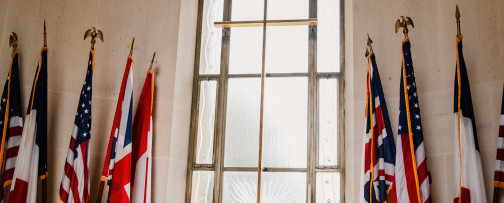Funerals are a time for mourning, reflection, and honoring the life of a loved one. They provide an opportunity for family and friends to come together and share memories, offering comfort during a difficult time. An integral part of this process is the sharing of the deceased's legacy and life stories. This article explores the importance of legacy and life stories in funerals, and how they contribute to the healing process.
The Role of Legacy in Funerals
The legacy of a person is the lasting impact they have made on the world and the people around them. It is a reflection of their values, achievements, and the love they shared. In a funeral context, the legacy is often highlighted to honor the deceased and provide a sense of closure for the bereaved.
Discussing the legacy of a loved one can bring comfort to those in mourning. It serves as a reminder of the positive impact the deceased had on their lives and the world. This can help to alleviate feelings of loss and grief, providing a source of solace during a challenging time.
Preserving the Legacy
Preserving the legacy of a loved one is a crucial aspect of the mourning process. This can be achieved through various means, such as creating a memory book, establishing a memorial fund, or planting a tree in their honor. These actions serve to keep the memory of the deceased alive, providing a tangible connection to their life and legacy.
Furthermore, preserving the legacy can also have a therapeutic effect on the bereaved. It allows them to channel their grief into a positive action, aiding in the healing process. It also provides a way for future generations to connect with their heritage and understand the impact of the deceased on their family history.
The Importance of Life Stories in Funerals
Life stories are a narrative of a person's life, encompassing their experiences, achievements, and relationships. In a funeral setting, sharing life stories is a way to celebrate the life of the deceased, highlighting their unique journey and the memories they created.
Sharing life stories can evoke a range of emotions, from laughter to tears, reflecting the full spectrum of the deceased's life. This can help those in mourning to process their grief, providing a cathartic outlet for their emotions. It also serves to humanize the deceased, reminding attendees of their personality and the shared experiences that shaped their relationship.
The Power of Storytelling
Storytelling is a powerful tool for preserving memories and making sense of our experiences. It allows us to connect on a deeper level, fostering empathy and understanding. In the context of a funeral, storytelling can provide a sense of connection and community, as attendees share their memories and experiences of the deceased.
Furthermore, storytelling can also aid in the grieving process. It provides a platform for expressing emotions and processing grief, promoting healing and acceptance. It also serves to keep the memory of the deceased alive, ensuring their legacy continues to impact those they left behind.
Conclusion
The importance of legacy and life stories in funerals cannot be overstated. They serve to honor the deceased, provide comfort to the bereaved, and promote healing. By preserving the legacy and sharing life stories, we can ensure that the memory of our loved ones continues to live on, providing a source of solace and connection during a time of loss.
Whether through a eulogy, a memorial, or a simple conversation, sharing the legacy and life stories of a loved one can provide a sense of closure and understanding. It allows us to celebrate their life, remember their impact, and move forward with the knowledge that their legacy continues to shape our lives.
Recommended Products
- Woodamore Share a Memory Cards — Beautiful 50-pack memory cards for celebrating the life of a loved one at memorials and gatherings.
- Funeral Guest Book & Memory Card Set — Elegant guest book with matching memory cards for funeral and memorial services.
- Mini Heart Urn — A small keepsake urn shaped like a heart for a portion of ashes


-banner.png)





